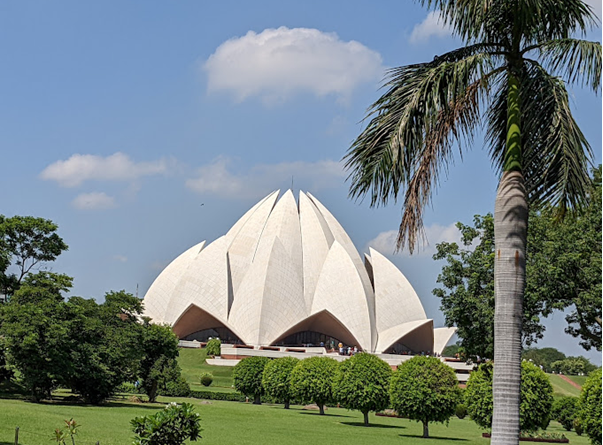
Emerging out from the gloom of Covid-19 health pandemic and confounded by the sudden acceleration in the otherwise gradual progress of civilization, the current turmoil and turbulence call for profound introspection. For the Bahá’ís, Naw-Rúz, the first day of a New Year coinciding with the Spring Equinox comes at the end of 19 days of fasting, usually 2-20 March, immediately after the termination of Intercalary Days. Bahá’u’lláh wrote in His Book of Laws: “…O people of the world! We have enjoined upon you fasting during a brief period, and at its close have designated Naw-Rúz as a feast… Say: This day, verily, is the crown of all the months and the source thereof, the day on which the breath of life is wafted over all created things. Great is the blessedness of him who greeteth it with radiance joy. We testify that he is, in truth, among those who are blissful.” It is the first day of the Bahá’í calendar that started in 1844, coinciding with the establishment of the Bahá’í Faith and one of the happiest days in the year.
with the changing of seasons and the march of time, change is inevitable. In these times of explosive growth marked by intense cultural, social, and technological change, in the advent of a Naw-Rúz, Bahá’ís discern the unleashing of fresh opportunities to share their vision and commitment for the betterment of the world and the happiness of all peoples. Centered on the fundamental principle of the oneness of humanity, Bahá’u’lláh’s teachings offer humankind hopeful new ways to view our place and purpose in the world. For Naw-Rúz is an occasion to dare and dream of discovering new potentialities for the soul to flourish as it walks the path of service. Bahá’ís are optimistic, even confident, that the current vortex of chaos and convulsions will infuse the human spirit, which is created to move towards the divine realm, with fresh capacities for heralding that promised Era of unity in diversity, of prosperity and harmony, the Aquarian Age, described in the Sacred Scriptures as the Ramrajya or the Kingdom of God on earth.
Naw-Rúz has its origins in Zoroastrianism and attributed to the legendary Pishdadian King Jamshid of Iran. The legend is contained in the poet Ferdowsi’s Shahnameh, or Book of Kings, an Iranian epic. It has been celebrated by diverse communities for over 3,000 years in Western Asia, Central Asia, the Caucasus, the Black Sea Basin, the Balkans, and South Asia.In 2009 Naw-Rúz was inscribed in the list of UNESCO Intangible Cultural Heritage of Humanity for it “promotes values of peace and solidarity between generations and within families as well as reconciliation and neighborliness.” In a sense, every holy day or festive occasion,as per the numerous calendars that are in vogue, is really a reminder to every human being to manifest the best in oneself and live in peace with all.
Bahá’í communities around the world have created unique ways to celebrate Naw-Rúz besides the traditional gathering around ‘the Table’, decorated with objects that symbolize purity, brightness, livelihood and wealth, to enjoy a special meal with loved ones. New clothes are worn and visits made to relatives, particularly the elderly and neighbours. Gifts are exchanged, especially for children, featuring objects made by artisans. There is devotional music and cultural performances, public functions, traditional sports and the making of handicrafts. These practices promote bonhomie and contribute to building community solidarity and peace. All are invited to participateold and young, men, women and children invigorating themselves with a new life.
Sharing the glad-tidings with all of a new Era, the Bahá’ís believe that the Revelation of Bahá’u’lláh and the adoption of a new calendar for age of humanity maturity has “breathed a new life into the body of mankind, and infused a new spirit in to the whole creation. It is for this reason that the world hath been moved to its depths, and the hearts and consciences of men been quickened. Erelong the evidence of this regeneration will be revealed, and the fast asleep will be awakened.” The tumultuous happenings and deep impacting events are propelling humanity to accept a most profound reality—interdependence and oneness of humankind. It is their conviction that “all nations and kindreds…will become a single nation. Religions and sectarian antagonism, the hostility of races and peoples, and differences among nations, will be eliminated.” All men and women will adhere to one Dharma or Religion, because the outpouring of divine guidance which has come from One Cosmic Source, is progressive and continuous process for the spiritual and social evolution of humanity. What we are witnessing at the present time, during “this gravest crisis in the history of civilization,” is the impetuous adolescent stage in the slow and painful advancement of civilization, as we know it, preparatory to the attainment of the stage of adulthood, the stage of maturity, the promise of which is embedded in the teachings, and enshrined in the prophecies foretold and sung throughout the ages by prophets, seers and poets and now actually dawning upon the harassed and desperate human race.
Let everyone one who is awake to the condition of our planet, and to the persistent evils that warp the lives of its inhabitants, address essential questions about who we are, what is our purpose on earth and why it is so crucial to give up old and outmoded attitudes and habits of thinking and acting that have been the cause of so much needless suffering, conflicts and devastation. Surely, festival of Naw-Rúz should impact the global consciousness for the speedy realization of VasudhaivaKutumbakam—One Planet, One Family, One Future.
The author is a social worker, independent researcher and an active member of the Bahá’í Community of India.